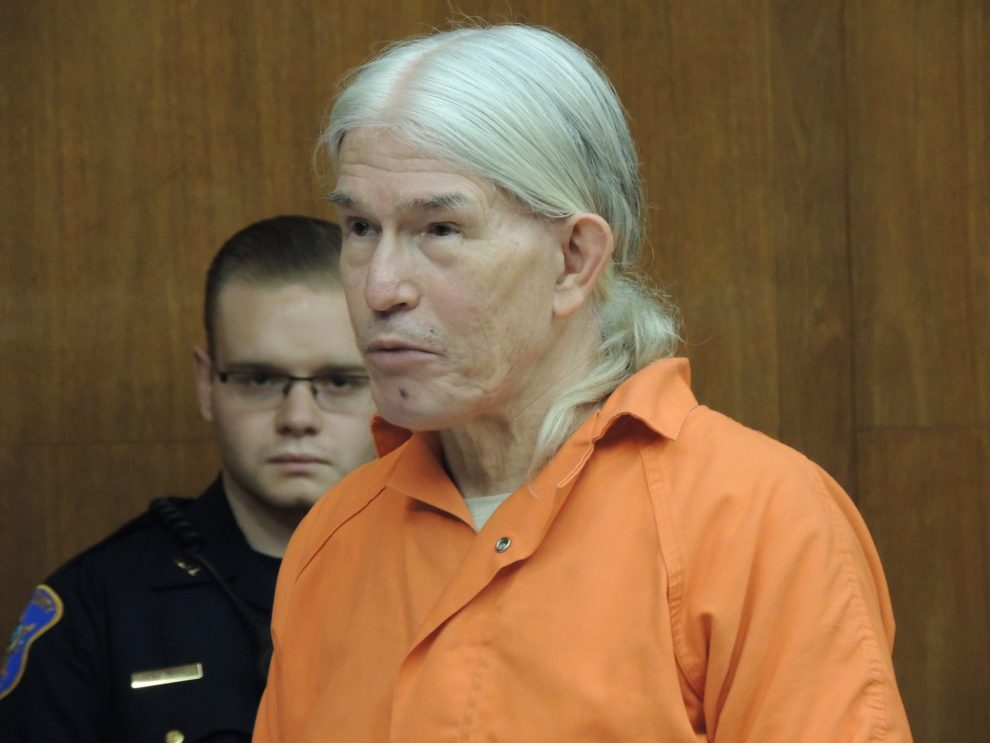By Mary K. Miraglia
HACKENSACK, N.J. (May 26, 2017) — A Ridgewood doctor whose cache of weapons and explosives was discovered due to Hurricane Sandy will go to trial, presumably representing himself, a year from now on May 29, 2018.
Dr. Roberto Rivera discussed mainly procedural matters with Judge Frances A. McGrogan last Friday, May 26 while the judge pressed for a plea offer.
Arson Unit Assistant Bergen County Prosecutor Martin Delaney has declined to offer Rivera a deal for several months, saying every offer he made has been “flatly refused.”
“We are always open to a counter offer, but we have made several offers that were flatly refused,” Delaney said. He said once again he would welcome “any counter offer” from Rivera, who is acting as his own attorney pro se. Rivera has stand-by counsel from Ian Silvera, a public defender and one of the most experienced defense attorneys in northern New Jersey. But he seldom consults with him, and has made efforts in the past to have Silvera replaced.
Rivera previously made a successful motion to have the charges against him separated into two trials: one for weapons, and another for explosive chemicals. He told McGrogan he prefers to try the explosives portion of the case first.

“I thought the explosives charges were more serious, and the state would want to try those first,” Rivera said. “The defense would like to not have a conviction on the record before he goes to the second trial. If convicted, I would have to go to trial on the second charges and I would have to reveal that I was convicted.
“Also,” he said, “I believe I’d have a better chance of winning on the explosives.”
“Well, that is your trial strategy, and the state’s is the opposite,” McGrogan said.
Rivera argued that a charge of a hazardous waste spill is erroneous, and should be dismissed. Delaney responded that spill is construed “in the broadest sense possible.”
Rivera said he plans to file a predicate charges motion, and an in-limiting motion. McGrogan, interpreting, said “So you’re moving to exclude the acetone, the thermite, the Anarchist’s Handbook, nitric acid, shotgun, ammunition and two magazines.”
Rivera complained, once again, that he has insufficient resources in the jail to prepare his case. He said he still needs more access to computers, and in addition he needs access to a printer and photocopier.
“If I have one hour a week with the printer and the copier, I would not need the other three hours in the library,” he said. McGrogan said she would reach out to the jail again to work out his access.
Rivera was arrested in November, 2012 after a neighbor reported him to police. He allegedly told the neighbor he was concerned that the prolonged power outage caused by Hurricane Sandy would cause the explosives he had under refrigeration to deteriorate. When the apartment where he was living was searched, investigators found a cache of weapons and chemicals including:
• a basement freezer containing 2.5 liters of nitric acid, which can be used to create explosive devices;
• attic containers that included hydrogen peroxide, glycerin, sulfuric acid, calcium hypochlorite, and potassium perchlorate, which can also be used to create bombs;
• 10 pounds of thermite, and 10 thermite lighters, which can be used to detonate bombs;
• several weapons, including two Cobray M11 assault pistols and a .40-caliber handgun, which weren’t registered and he wasn’t allowed to have;
• a Hellfire trigger mechanism that can allow a firearm to fire at an extremely high rate;
• several high-capacity magazines;
• a stun gun;
• assorted boxes of ammunition.
State authorities said the search also turned up folders marked “Revolution” and “Anarchism,” which they said included instructions for creating homemade explosives, a military improvised munitions manual and documents on how to convert firearms into fully-automatic machine guns.















